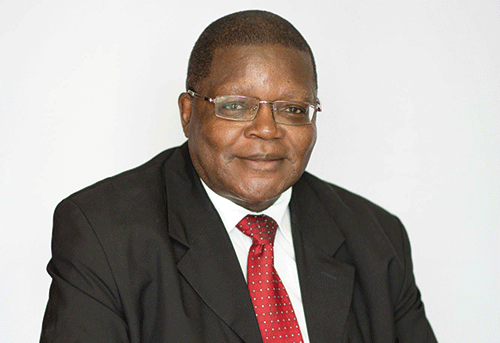Professor Jairos Kangira
The theme of the commemoration of the 61st anniversary of the African Union this year was ‘The Year of Education: Educate an African fit for the 21st century’.
A few weeks ago, as I listened to speeches marking the formation of the Organisation of African Union, which culminated in the African Union at the Parliament Gardens, I marvelled at the African forebearers who mooted the idea of uniting the then independent states of Africa under the Organisation of African Unity (OAU) banner.
One of their major aims was to assist in the liberation wars that most African countries were waging against colonialism and imperialism. This article would be incomplete without quoting one of the founders of the OAU, Ghana’s first president, Kwame Nkurumah, who said on 25 May 1963, “Independence is only the prelude to a new and more involved struggle for the right to conduct our own economic and social affairs; to construct our society according to our aspirations, unhampered by crushing and humiliating neo-colonialist control and interference.”
Also, in order to stay focused as a continent, we must always remember Frantz Fanon’s words: “Each generation must, out of relative obscurity, discover its mission, fulfil it, or betray it.”
We must not betray this mission.
We should also be guided by the words of our own Dr Sam Nujoma, the Founding President of Namibia and Father of the Nation, who rightly said:“A people united, striving to achieve a common good for all the members of society, will always emerge victorious.” As a commentator on issues of education, I found the theme of education not only interesting, but also debatable as to how far individual countries have fared in this regard. However, there is no doubt that post-colonial Africa has made strides in providing education to the populace, reaching remote areas that colonial governments had shunned and neglected.
I, therefore, agree with the honourable Peya Mushelenga’s observations in his speech on Africa Day, when he remarked, “There have been substantial efforts on the continent to ensure access, completion and quality of basic education for all.
Overall, the proportion of out-of-school children has decreased, and the number of girls attending school has increased beyond expectations.
The completion rates have improved in primary and lower secondary education, as have access to and participation in TVET. Therefore, as Africans, we should be proud of our efforts emanating from our investments in the education sector, which have now resulted in tangible outcomes and will continue to yield concrete results.”
Mushelenga’s remarks are supported by recent reviews of the Education 2030 Framework for Action, the AU-Unesco Continental Report, and the Joint AU-Unicef Report on Transforming Education in Africa, which indicate that over the past 10 years, African governments have undertaken a wide range of programmes and policy-level efforts to ensure that no child is left behind in access to education.
Locally, what is impressive is that the Ministry of Education, Arts and Culture has embarked on a massive programme that is aimed at improving the quality of education. The executive director of the ministry, Sanet Steenkamp, was upbeat about the positive effects of foundational learning that targets early childhood and pre-primary learners in the country.
“We cannot have expectations for improved learning outcomes at the secondary school level without emphasis on the foundational level,” said Steenkamp, adding that her ministry has trained all heads of department at the junior primary level in the country on how to use Jolly Phonics Grammar, a programme that teaches children to read and write using synthetic phonics, which is widely-recognised as the most effective way to teach children to read and write in English.
This is one example of the ongoing in-service training programmes for teachers.
In my conversation with Steenkamp, it was also heartening to know that at the United Nations Transforming Education in Africa Conference that was held in New York in 2022, Namibia and Italy led the proceedings.
In addition to this role, Namibia came out as one of the10 champions of education in Africa.
Meanwhile, the high-level task force for the implementation of the recommendations of the National Conference on Education held in 2022 was constituted by the Cabinet. The task force held consultative meetings, which reduced the 43 recommendations of the conference to 10 key levers of change in Namibia.
The Cabinet directed the task force “to oversee the implementation of the levers of change through respective technical committees.”
What is impressive is that the high-level national conference on education task force comprises eminent academics from the Ministry of Education, Arts, and Culture, the Ministry of Higher Education, Technology, and Innovation, and public and private higher education institutions, higher education accreditation institutions, and non-governmental organisations.
* Professor Jairos Kangira is a professor of English at the University of Namibia



